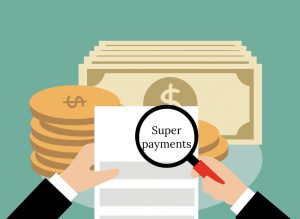Superannuation payments – Pay on time, every time, no excuses!

With the implementation of single touch payroll, the ATO has real time data of wages paid, super due and receipts by super funds. This means now more than ever Superannuation must be paid on time.
We’ve helped many small businesses implement systems to embrace single touch payroll by moving to cloud accounting with Xero or MYOB and gaining the additional benefits of time, knowledge and control of their business. We see benefit in paying super as part of each pay run rather than the traditional method of managing as a large end of a quarter payment with a high administration and cashflow impact. If an employee changes super funds without telling you the funds will bounce back while you still have time to fix the issue.
We’re here to help and expect that more of our clients will want to get their processes accurate and efficient.
The ATO is cracking down on late super payments.
Paid on time means received by the super funds for 100% of employees. This is not the day the payment leaves your bank account but is the day the cash is received by the super fund. You may need to add as much as 7-10 days processing time.
Late payment of superannuation triggers the Superannuation Guarantee Charge (SGC) under s.17 of the Superannuation Guarantee (Administration) Act 1992. The implications and complications of this charge are many and include:
- Your superannuation payment and all late fees aside from GIC is not deductible.
- Submit a SGC form to the ATO for each quarter and each employee for which super was paid late.
- Pay a 10% interest charge on the late super until the date of payment from the first day of the quarter (yes, pay 1 day late on 29 October and you’ll pay 10% interest on the full balance due starting 1 July).
- Pay a $20 admin fee per employee per quarter.
- Recalculate super on all earnings, not just ordinary time earnings. This means some overtime and bonuses that did not require super payments now do. Yes, add the 10% interest charge on top.
- Possibly pay a penalty for failing to lodge a Superannuation Guarantee statement, equal to double the amount of the SGC, that is, up to 200 per cent of the SGC payable
- Pay general interest charge (GIC) on the unpaid amount.
- Director’s may become personally liable for late super.
These implications are massive and bordering on ridiculous in their scope, however the law is the law. Our aim is to help you comply and make sure you don’t encounter the issue in the first place.
You may be able to calculate and make use of a superannuation guarantee charge offset to diminish your liability. This isn’t straightforward and is calculated per employee per quarter, so if you have had staff turnover that will need to be factored into calculations.
Late payment is late payment and near enough is not good enough. The Superannuation Guarantee Charge is a circus best avoided. We’re here to help you avoid the circus.
Our in-house bookkeeping, cloud accounting and business process experts can assist with payroll set up or implementing systems that will help you keep your business finances and payroll and superannuation obligations on track.
Super – pay on time, every time, no excuses.





